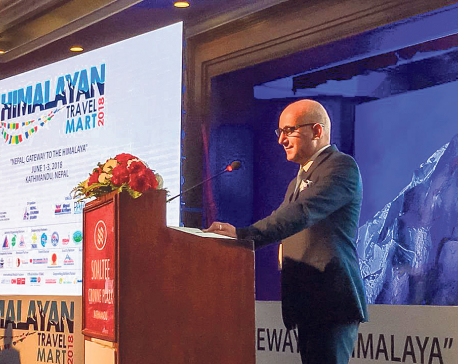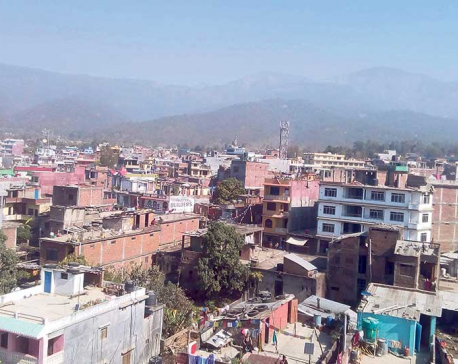
OR
Local governance
With Prime Minister Pushpa Kamal Dahal on Tuesday formally announcing that the newly-delineated 744 local level units have become functional across the country, Nepal has taken a major stride towards implementing
federalism. Nepal was turned into a federal state with the main goal of taking the government to people’s doorsteps. Under the old unitary, centralized set-up, people had to travel great distances even for minor tasks like making of birth and death certificates. The tasks of acquiring citizenship and passports were harder still. All these services, formerly provided by district administration offices, zonal offices, regional headquarters and the national capital will now be availed by village councils and municipal councils. The newly empowered local bodies will also have vastly more powers than those enjoyed by the VDCs and municipalities they have replaced. For instance the local councils will be able to collect tax, manage local police, provide license to FM stations and to oversee primary and secondary education at local schools. All these changes could together revolutionize governance in Nepal. But for this it is important that local election be held on time and new elected representatives be immediately entrusted with the responsibility of managing local affairs.
We can have on paper the best local bodies in the world. But they won’t be able to function well without elected representatives who are accountable to the people. Without elected officials local bodies will once again be liable to abuse. As we have seen, in the absence of elected officials, local-level bureaucrats often work in cahoots with local units of political parties and they among them gobble up nearly all the funds from the center. The money that should be going into local roads and irrigation canals thus end up in their pockets. Since they are not answerable to anyone, they tend to get away with it, year after year. This is why it is vital that the newly created local level units get elected office-bearers at the earliest. Separately, the creation of new local units also marks an important milestone in the implementation of the new constitution. As provided in the new constitution, these elected local units will be among the most inclusive in the world, with women occupying as much as 50 percent all elected positions. There will be improvements in representation of traditionally marginalized communities as well.
As the new local bodies come into force, there is now no turning back on federalism, something that has long been feared by a section of the
society. Yes there might still be voices who are strongly opposed to the federal formula, but their opposition will be feeble as federalism becomes fait accompli. Now is the time to emerge from this circuitous debate over the relevance of federalism and toinstead start debating how to make the new federal model work. We are optimistic. The country has already come a long way since the historic 2006 Jana Andolan; compared to that time it is a lot more equal and inclusive place. The inauguration of new local level units on Tuesday is another major step towards the creation of ‘New Nepal’ that people envisioned when they came out in their hundreds of thousands during the epoch-making protests of 2006. No one should try to belittle what has been achieved in this short time.
You May Like This

Himalayan Travel Mart 2018 kicks off
KATHMANDU, June 2: With the theme 'Nepal, Gateway to Himalaya', 3-day-long Himalayan Travel Mart 2018 kicked off in Kathmandu on Friday. Read More...

US national jumps off hospital's sixth floor, dies
KATHMANDU, April 3: John Parmak, 52, presumed to be a US citizen, had made two unsuccessful suicide attempts while in immigration... Read More...

Province level trade, tourism and agro fair kicks off
SURKHET, Feb 10: The 'Province level Trade, Tourism and Agro Festival-2074' has kicked off in Province-6 temporary capital, Birendranagar, on... Read More...





Just In
- MoHP cautions docs working in govt hospitals not to work in private ones
- Over 400,000 tourists visited Mustang by road last year
- 19 hydropower projects to be showcased at investment summit
- Global oil and gold prices surge as Israel retaliates against Iran
- Sajha Yatayat cancels CEO appointment process for lack of candidates
- Govt padlocks Nepal Scouts’ property illegally occupied by NC lawmaker Deepak Khadka
- FWEAN meets with President Paudel to solicit support for women entrepreneurship
- Koshi provincial assembly passes resolution motion calling for special session by majority votes






_20220508065243.jpg)






Leave A Comment